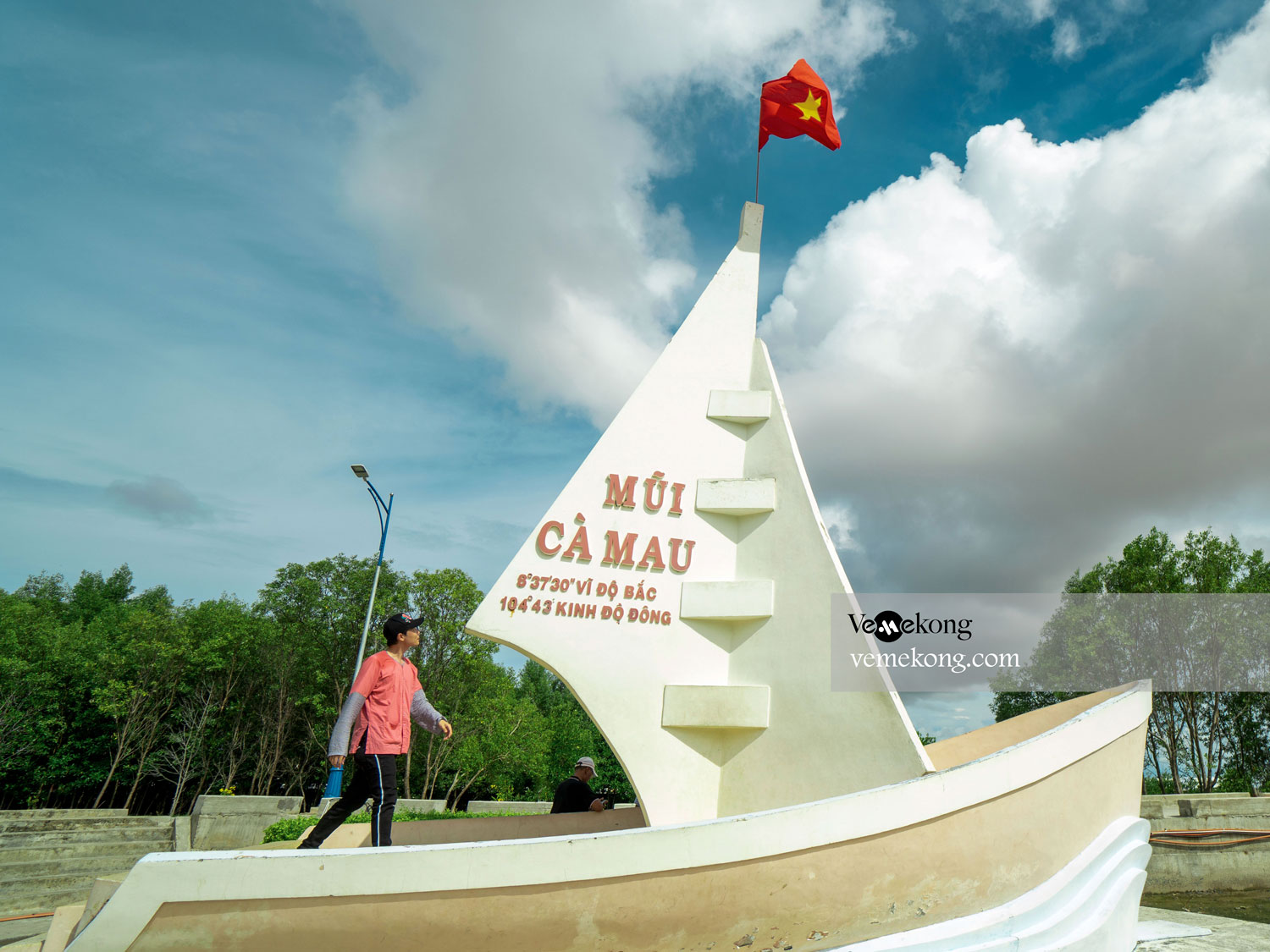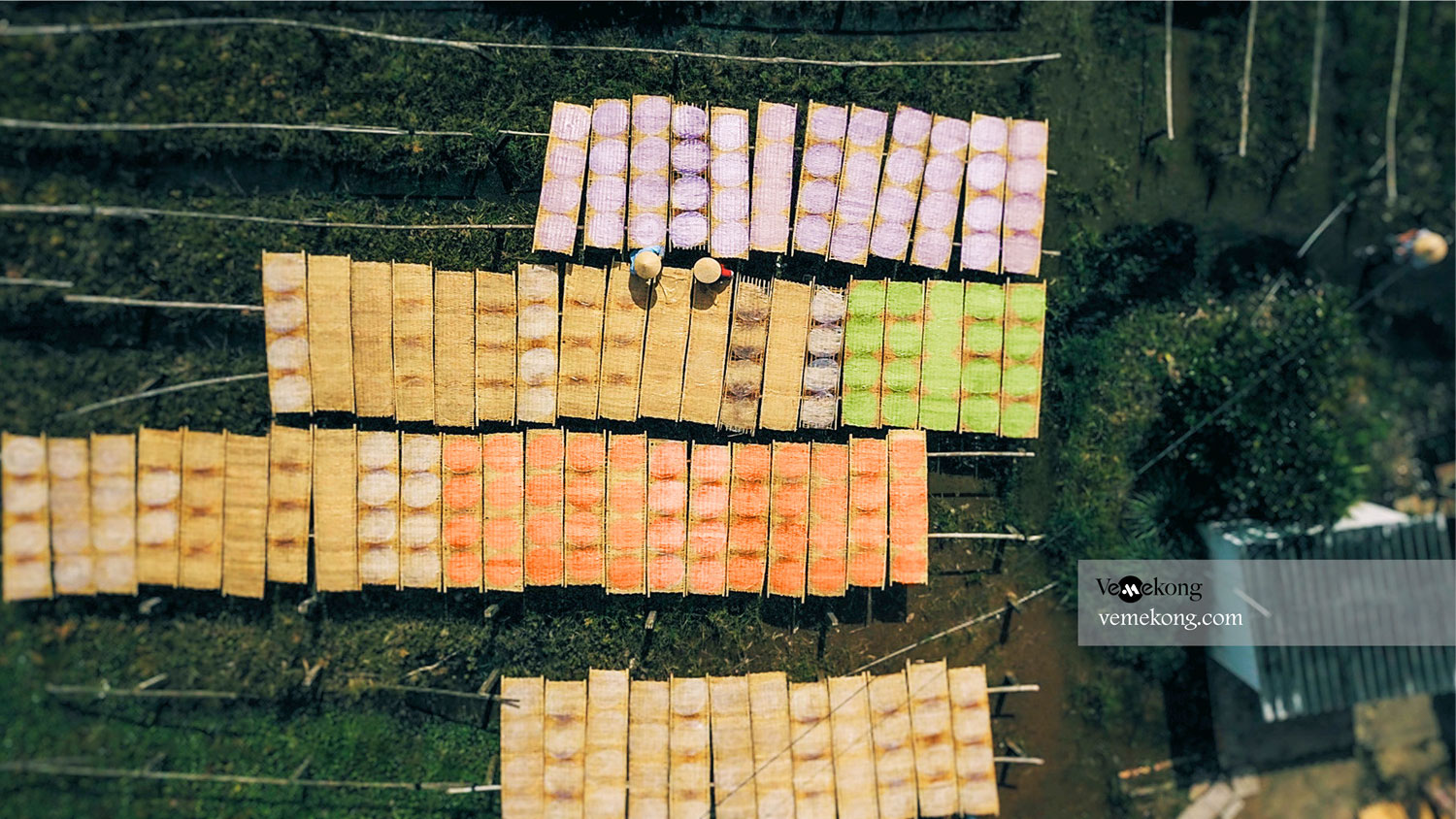Ca Mau Cape (Mui Ca Mau National Park) is a place that any tourist cannot ignore when coming to Ca Mau. This place has an area of about 41,000 hectares with diverse vegetation.
By Thomas Vietnam at vemekong.com | Official Ca Mau Visitor Guide
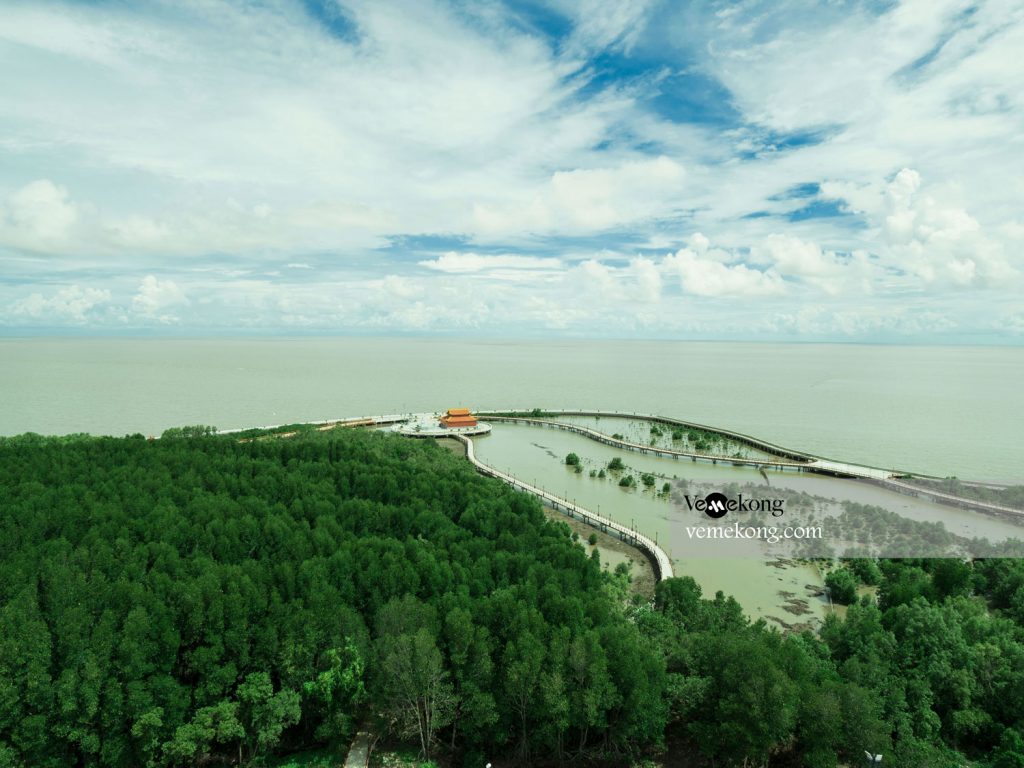
1. Better to Know as a Tourist
Ticket: About 30,000 VND
Spend-time: One hour (approx)
Hours: Dawn – dusk
Food: Yes
Shop: Yes
Parking lot: Yes
Blog: https://vemekong.com/ca-mau-cape-national-park-mekong-delta-vietnam/
Address: Located in Dat Mui commune, Ngoc Hien district, Ca Mau province; 120km from the Ca Mau city center.
Added values: Ca Mau Cape (Mui Ca Mau National Park) is a famous destination with typical geographical, cultural, scenic and eco-tourism characteristics of the country. Ca Mau Cape is also a sacred place in the hearts of every Vietnamese, where everyone wants to once set foot in this dear cape. In that sacred land, you will once get your hands on a proud landmark of sovereignty, or stand on an iconic ship heading straight to the East Sea. Then when you leave, you will forever remember the place where there are no tall houses, only mangroves and parrots make nostalgia. Please share with visitors useful information about Ca Mau Cape tourism to help you have the most complete trip to discover Mui Ca Mau National Park.
Nearby attractions and hidden gems: Looking for places to stop on your way to and from Ca Mau Cape? Or maybe you found it too crowded here? We’ve got some ideas! Check out our list: Thi Tuong Lagoon (92 km), Hon Khoai Island (30 minutes), Ca Mau City Bird Garden (117 km), Nam Can Mangrove Forest (55 km), Thien Lam Pagoda (114 km), Hon Da Bac Island (117 km)…
2. Travel Guide to Ca Mau Cape
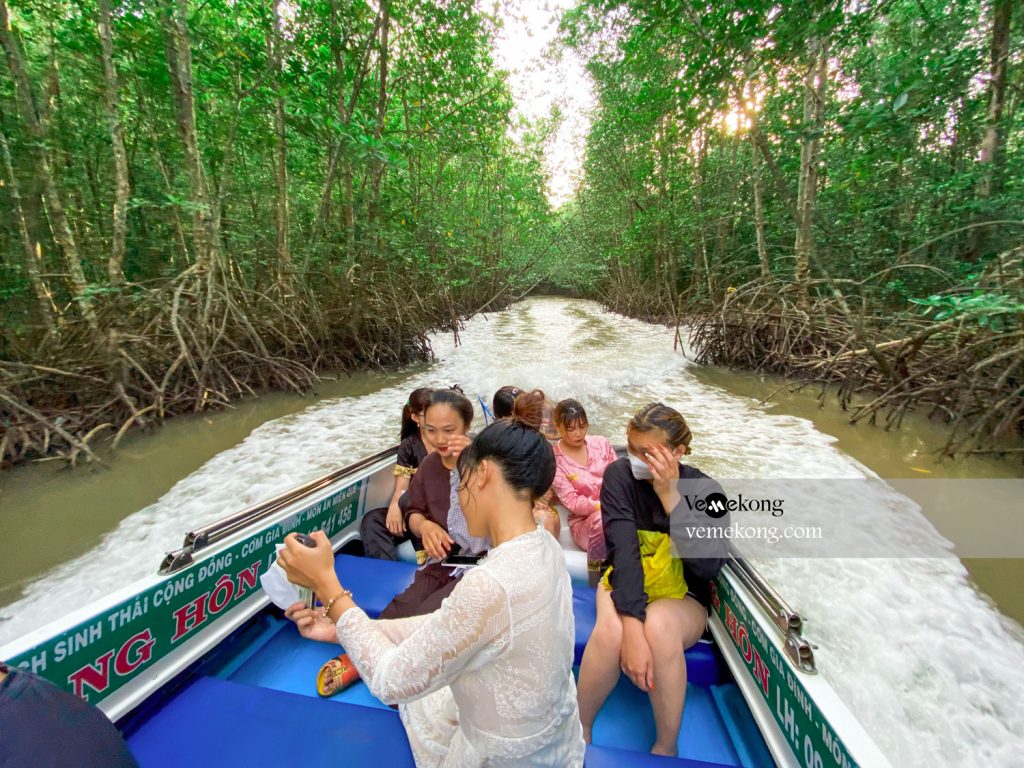
Ca Mau Cape (Mui Ca Mau National Park) was established in 2003 when Dat Mui Nature Reserve was transformed into a National Park in the system of special-use forests of Vietnam. This is the largest primeval mangrove forest in our country, adjacent to the East and West seas, so it is influenced by both tidal regimes: semi-diurnal tides in the East Sea and diurnal tides in the West Sea, which is the breeding ground of many species. Seafood has economic value and is a stopover for many migratory water birds. The total land area of Mui Ca Mau National Park is about 41,862 hectares. In which, about 15,262 hectares is the land area; the remaining 26,600 hectares is the coastal area in contact with the mainland; divided into 4 main subdivisions: strict protection zone (12,203 ha), ecological restoration subdivision (2,859 ha), administrative – service subdivision (200 ha), marine conservation subdivision (26,600 ha).
Currently, Mui Ca Mau National Park has a very rich and diverse population of flora and fauna, with about 26 species of mammals, 93 species of birds, 43 species of reptiles, 139 species of fish, with 9 species of amphibians, 49 species of plankton, and many other rare species… Of which two are in the world’s red book is the long-tailed monkey (Macaca fascicularis), the silver langur (Trachypithecus cristatus) and four species listed in the Vietnam Red Book.
On May 26, 2009, Cu Lao Cham island (Hoi An city, Quang Nam province) was located 15km from Cua Dai coast along with Ca Mau Cape National Park (Ngoc Hien district) and U Minh Ha national park (District 1). U Minh) in Ca Mau province has been included in the list of World Biosphere Reserves by UNESCO. On April 13, 2013, the Secretariat of the World Ramsar Convention recognized Ca Mau Cape National Park as the 2,088th ramsar site in the world.
The way to Ca Mau Cape – Mui Ca Mau National Park
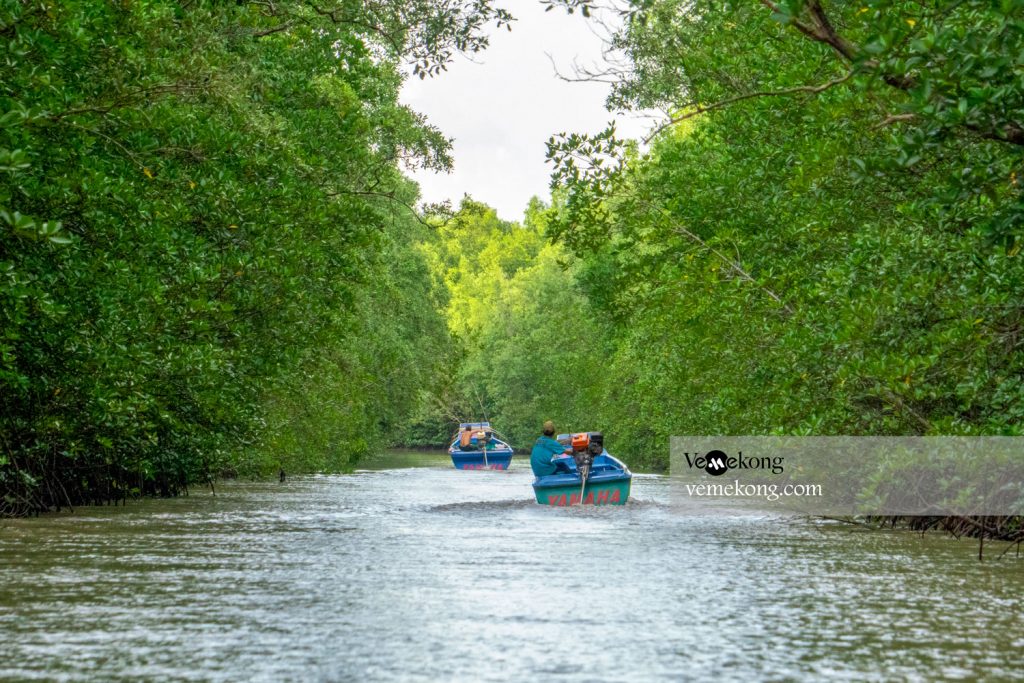
Mui Ca Mau National Park, the mainland part belongs to the administrative territory of the communes: Dat Mui, Vien An and Dat Moi, Ngoc Hien district, Ca Mau province, about 100km from Ca Mau city and from Ho Chi Minh City is nearly 400km. Because the distance is quite far, the most reasonable means of transportation is by car or bus. Note that if you ride a motorbike, you need to be healthy and need to rest along the way.
In Ho Chi Minh City to Ca Mau, you can travel by bus with reputable car companies such as Phuong Trang, Giap Diep, Hung Thinh… In addition, you can book a Vietnam Airlines flight ticket for Vietnam Airlines with a flight time of 1 hour. Depending on the budget you have, you can choose to travel by car or plane.
From Can Tho, you can go along National Highway 1A through Hau Giang, Soc Trang, Bac Lieu provinces, then continue about 67km to the center of Ca Mau city.
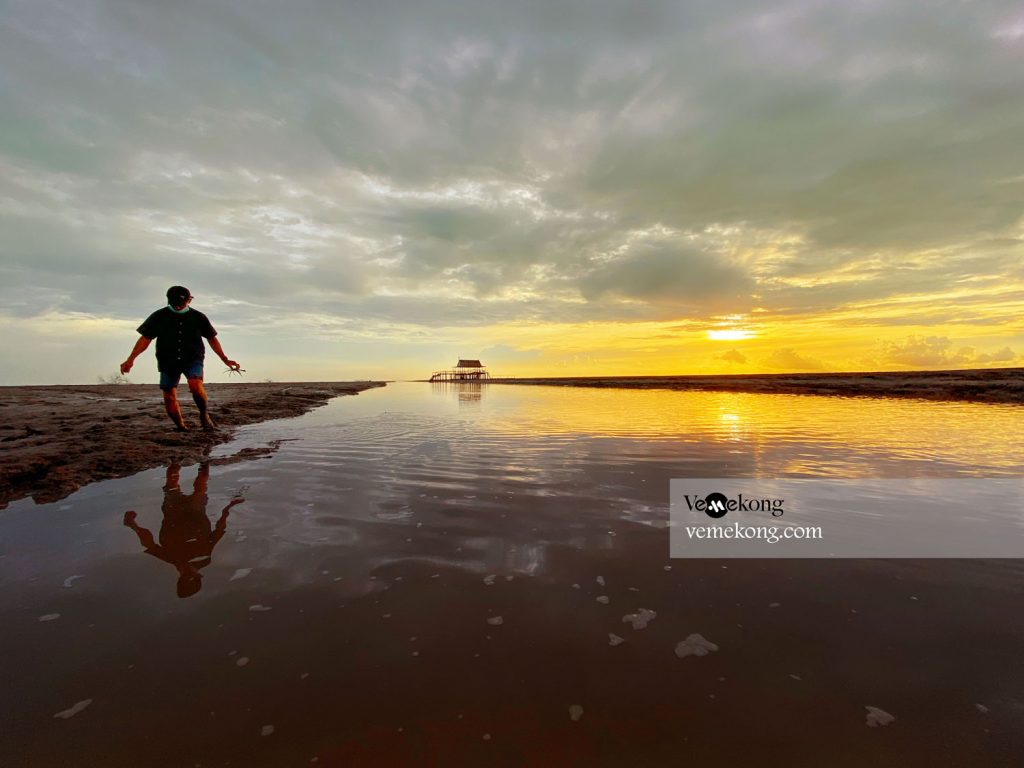
Starting from Ca Mau city, you can rent motorbikes and cars for more than 50km along National Highway 1A with more than 1 hour time, visitors will come to Nam Can. Then you keep going about 1,5 hour more for Mui Ca Mau National park where the strip of land protruding into the sea in the shape of a boat’s bow named Dat Mui is a place where you can watch the sunrise in the East Sea in the morning and also see the sunset in the West Sea. The best place to see this scene is the long and winding breakwater, enveloping the mangrove forest and the land inside Dat Mui.
When the first dawns gradually dawned with red lights illuminating the whole sky, the mangrove forest here also gradually woke up. The immense green color of mangroves, fish sauce, sparkling water mixed with the blue ripples of sea water captivates those who come here. And when the afternoon comes, the sunset brings with it colorful clouds, making the scene of Dat Mui more lyrical and romantic.
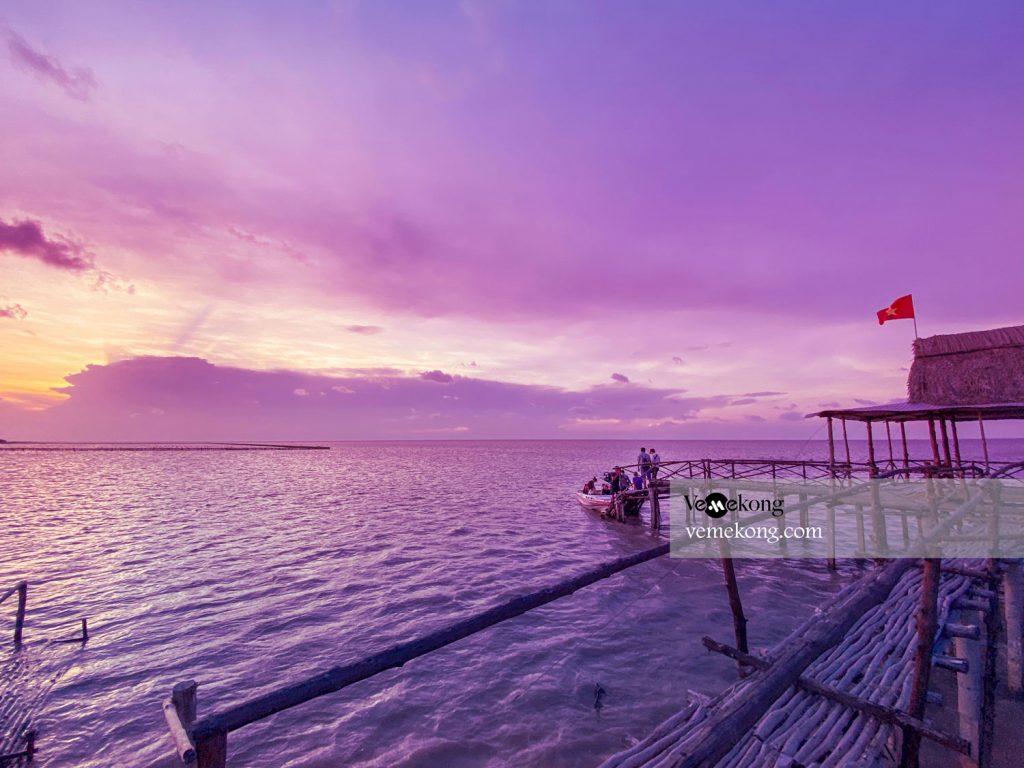
Traveling to Ca Mau, coming to the cape commune of Ngoc Hien district, in addition to the sacred meaning of visiting the southernmost symbol of the Fatherland Cape Ca Mau, visitors will experience exploring the mangrove forest of the National Park of Ca Mau cape.
Participating in the experience with the forest route, visitors will be able to sail or canoe on Lach Vam canal to see the rows of caged oysters close to the river surface and have the opportunity to learn about caged oyster farming – and aquaculture profession. bringing stable economic benefits to improve living standards for people in Dat Mui; Explore the mangrove ecosystem, learn about the creatures under the forest canopy, take souvenir photos with the many-year-old mangrove roots, and the people’s lives along the forest route.
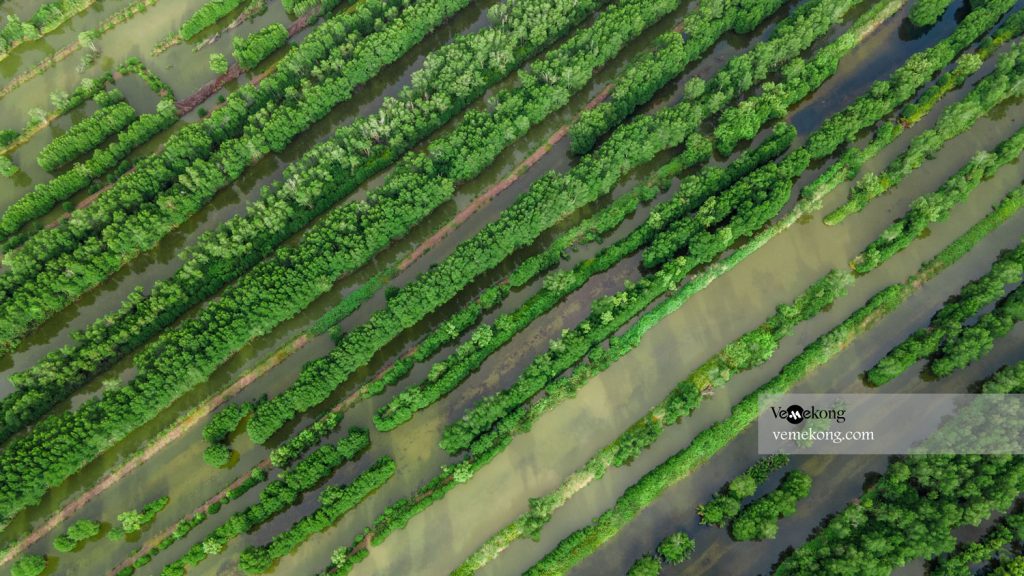
Dat Mui alluvial ground is an ideal stop for visitors to watch the migratory birds every time they come here, cover their eyes with the gradually opening alluvial soils, visitors can accidentally touch your eyes when you see the stirrings and movements of the living world on the mudflats because this place is the breeding ground of the galaxy, some of the typical seafood of Dat Mui.
3. What to Do –See – Eat at Ca Mau Cape – Mui Ca Mau National Park
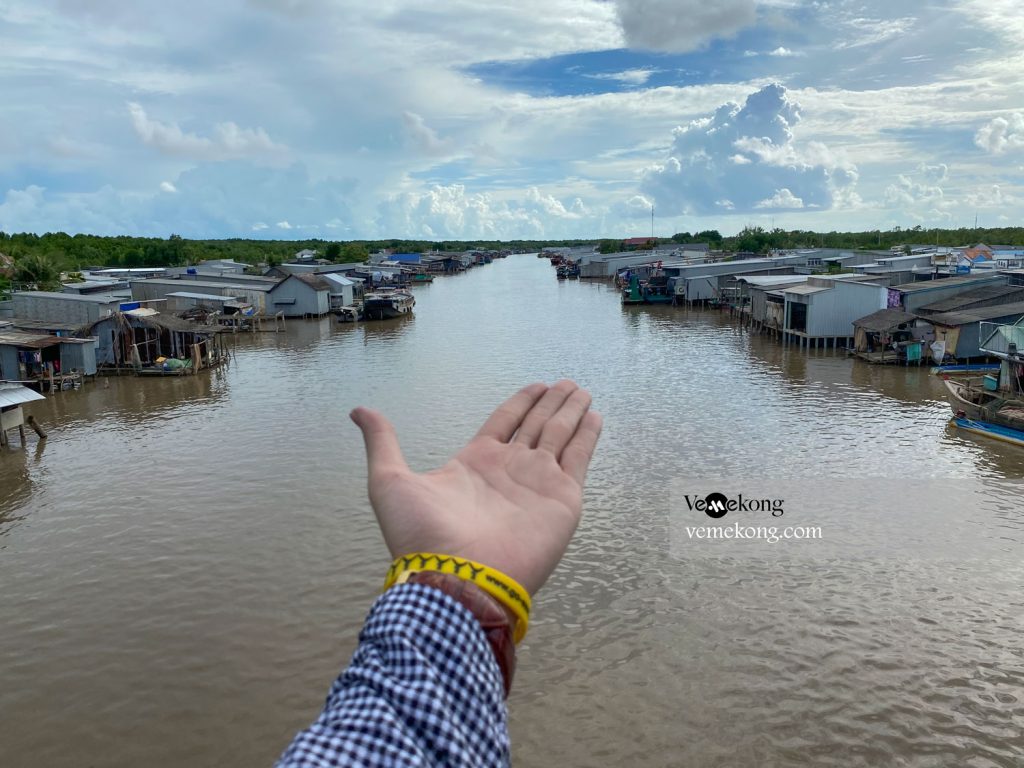
The Don Ca Tai Tu Club at Mui Ca Mau National Park Culture and Tourism Park is a useful playground for enthusiasts of this traditional folk art form to live and exchange, this is also a special highlight. for Dat Mui tourism products.
At Dat Mui community-based tourist sites, visitors can participate and enjoy the Don Ca Tai Tu tourism to exchange and show off their artistic talents.
About Dat Mui commune, tourists will partly understand the life associated with the mangrove canopy and the fish sauce of the people in the alluvial land here. The residential hamlet of Dat Mui commune is also the last residential neighborhood of the country on the mainland. The main occupation of the people in this land is fishing and shrimp farming. People often live along the canals to facilitate trade, creating a typical life of Ca Mau people.
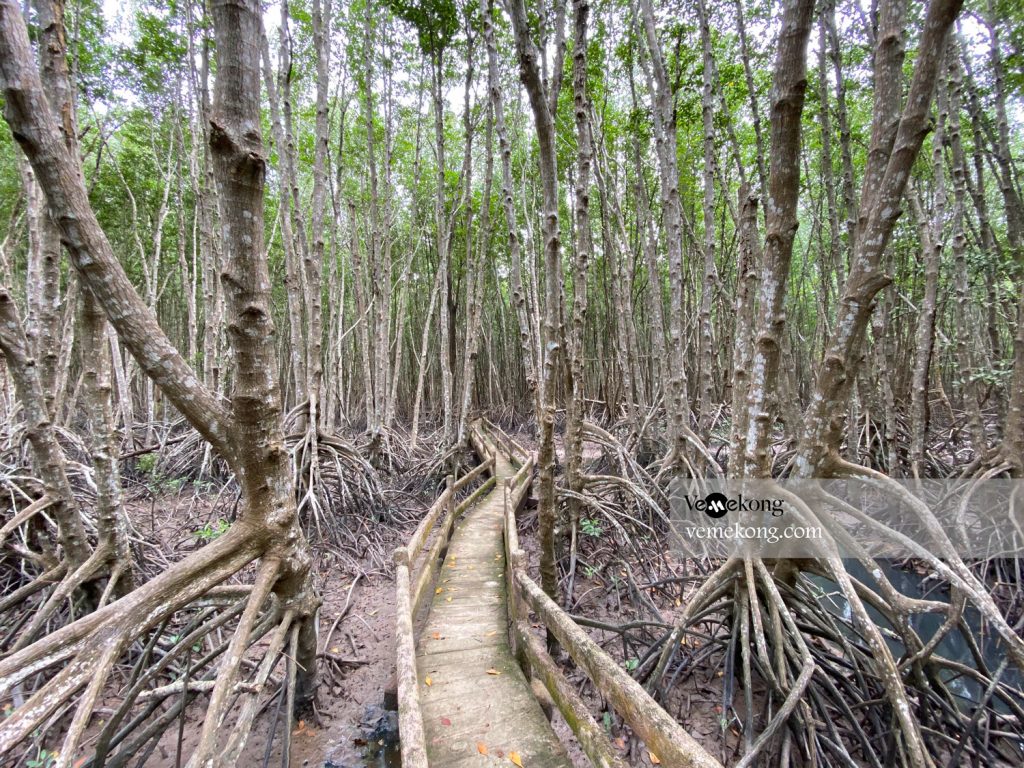
The house without a door is a unique cultural feature of the people of Xom Mui hamlet, Dat Mui commune. Currently, the hamlet has about 350 households, of which nearly 40% have built houses but have not built doors. This is also the place where the most houses in the commune still exist. The reason why people here mainly build houses without doors is due to the main characteristic that they work in the sea, build houses without doors to conveniently transport seafood up and down for convenience and spaciousness.
The most precious thing in a house without a door is the attachment, imbued with village love. Their people still keep and continue the good customs of their ancestors. That is why the house without a house has become a beautiful cultural behavior of the people of Xom Mui in the hearts of every tourist when coming here.
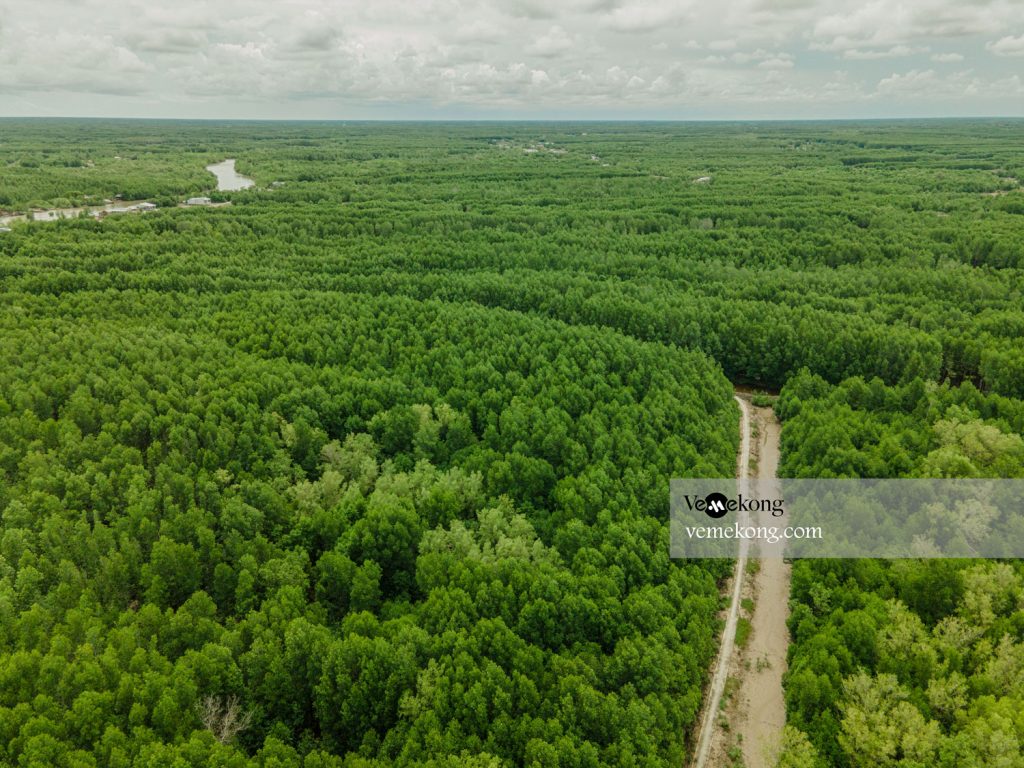
Looks like that, but the people here are available in the blood of generosity. You may be wary when you see that the neighbors are somewhat desolate, but when you set foot in and swoop down to the banquet table, even if you only have a plate of a few mudskippers grilled with salt and pepper, the quality is generous. It will make you forget the way home.
In addition to the famous check-in places, the form of accommodation is also quite developed. You can stay overnight with the homestay to experience the idyllic life of the people here. Coming here, visitors can both rest and relax in the fresh air, visit the mangrove forest, and enjoy fresh seafood dishes from the mangrove ecosystem. In addition, visitors can also swim in shrimp squares, experience fishing activities, go fishing, catching wool snails, mud-skippers, sea crabs…
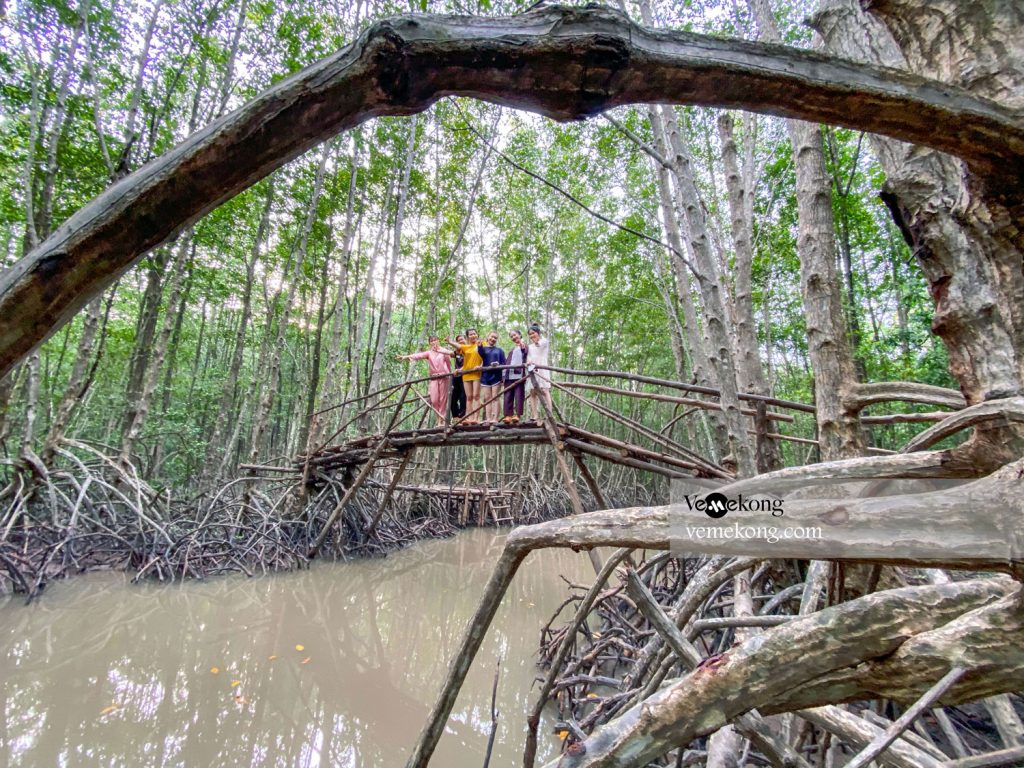
The people of Dat Mui “revealed” that Dat Mui Ca Mau has many flavors of the sea bestowed. Here, there are many delicious dishes such as fried snails with coconut, roasted basa fish with tamarind, braised pangasius fish, mudskipper grilled with salt and pepper…
4. Free Itineraries from VeMekong
As a local travel expert, we have some ideas for you to think about.
From Ca Mau city center:
Route 1:
Route 2:
Route 3:
If you do not have much time left, it is easy to check out spots in one full day by boat or with bike or with motorbike and car. But there are much more than tourist sites like these in Ca Mau. Make sure you have more time to feel and explore more about the hidden gems and the culture, food, night life, wildlife and forest as well. Top tip: Stay in a homestay nearby, so you have more chances to visit it and surroundings. If you are looking for the package Ca Mau daily tour with local, you can contact www.vemekong.com or Hotline/WhatsApp/WeChat/Zalo +84939888559; email: hello@vemekong.com
5. Google Maps of Mui Ca Mau Cape – Ca Mau National Park
Google Maps made a name for itself helping people travel from one place to another, avoid traffic (You probably know the route from your hotel to the gas station by heart, but what you can’t be sure about is gridlock), measure a distance, get back to the hotel on time, share the location…
6. Visit Mui Ca Mau Cape – Ca Mau National Park by yourself
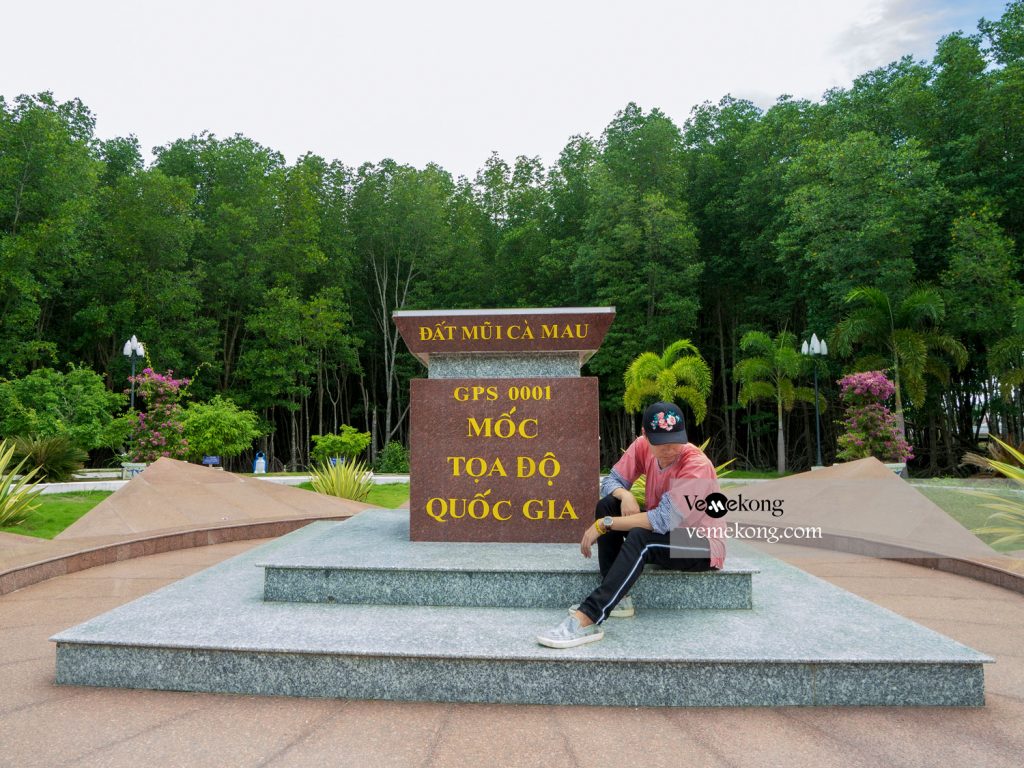
Solo traveller? Travelling on your own means you will get out of any difficult situations by yourself. This, in turn, leads to more satisfying travel experiences and helps you improve your problem-solving skills. These days we rarely get the chance to sit with ourselves and simply be. That’s why you should consider the time you spend alone on your trip as a gift.
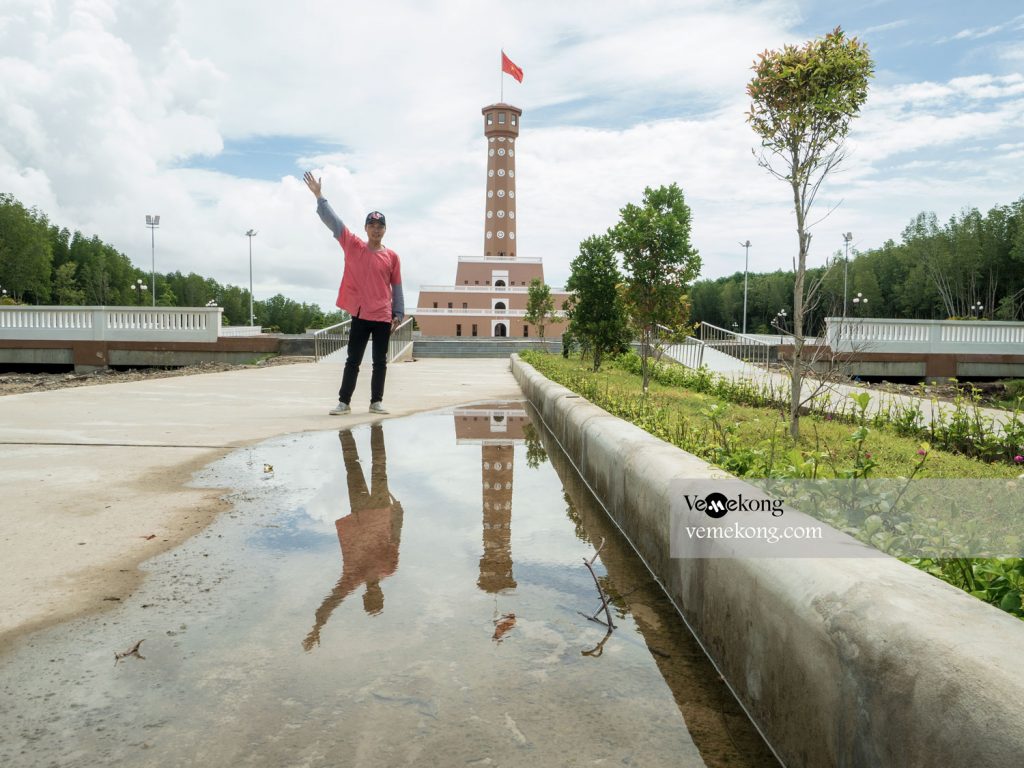
It is possible for solo travellers to use google maps and do it alone. But sometimes they need to update local maintained roads and bridges which close and lead you a longer road than the road from Google maps. It is just about the time. It takes more time to find the correct garden to come. Adventure is always fun. Wifi is strong in Ca Mau village! The locals find it hard to speak English as well. Top tip: Sticking to one canal and keeping going along it which gives you more things to see and avoids getting lost. Contact vemekong.com to hire a car, scooter with English-speaking-guide or cycling tours in Ca Mau.
7. Responsible Travel and Advice Ca Mau Cape – Ca Mau National Park
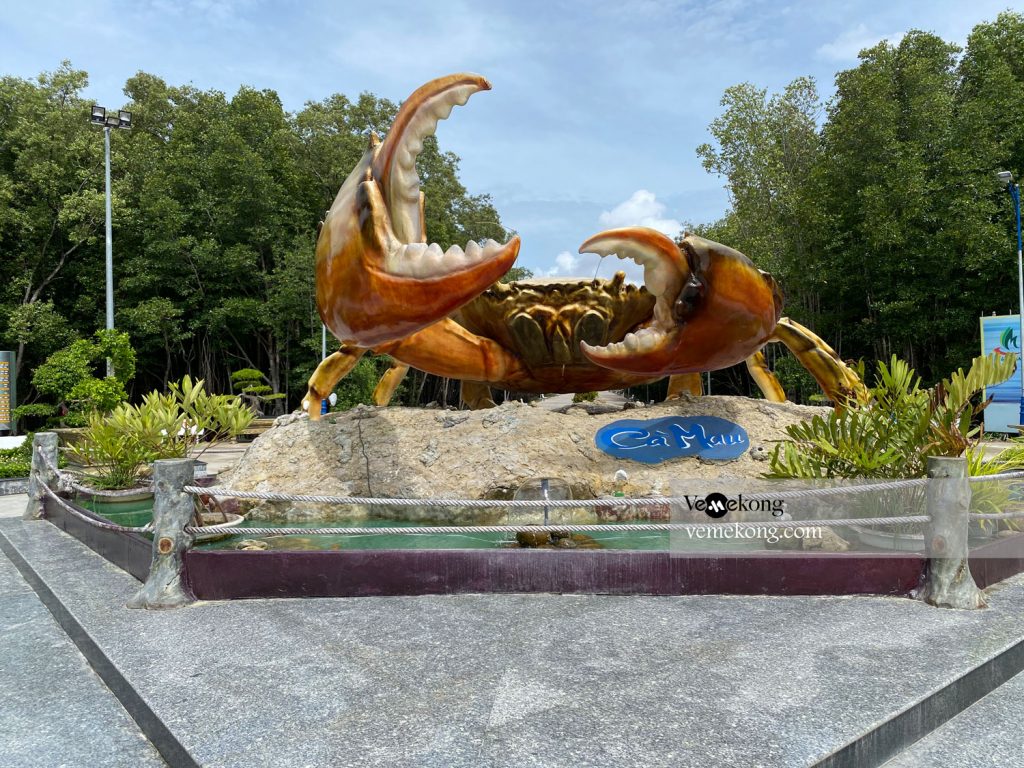
Don’t get us wrong. But we assure you that you totally agree with us. “Do not give candy and things to the children when you plan to visit any local villages”, the kids will leave the school and follow the sweets and later they find some things to give you or sell to you. The garden is a little forest, don’t pick and touch the flowers or fruits without the local’s smiles. We deal with traveling green and leaving green behind, not plastic. Top tip: Vemekong.com are some of the companies that care a lot about responsible travel and local respectation.
8. Amazing Video flycam/drone of Ca Mau Cape (4k)
If a picture says a thousand words, it stands to reason that the video says many times more.
9. Incredible Tips for Photography, Specialists, KOLs, Media and Influencers
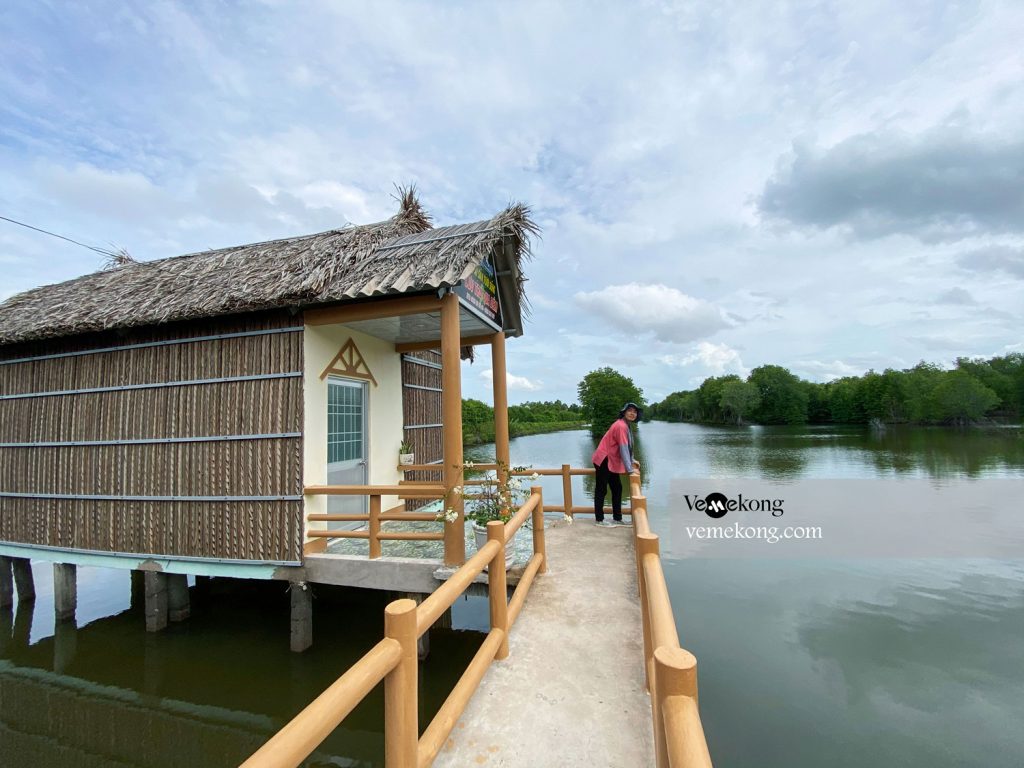
To get the best of the best for your unique writing, featuring, photo, video and insider’s stories. We do recommend you to have a local travel expert, the one who always gets more ground information and makes sure every single element is solved perfectly. The Vemekong (very exclusive Mekong) team is your priority choice. Email and have a private talk with them to customize your journey smoothly, personal and the most ultimately amazing. You can contact www.vemekong.com or Hotline/WhatsApp/WeChat/Zalo +84939888559; email: hello@vemekong.com
10. Pro Tips
You can stay in a homestay which is near the riverside, this will help you out the best option. Then you can hire a scooter, car or bike and explore it by yourself. There are many local homestays in the mangrove forest near Ca Mau cape and near U Minh Ha forest. Both of these places are super green for staying and forget the world.
If you plan to extend your travel to Ca Mau homestay, do not forget to bring mosquito repellent cream.
Visit Ca Mau or do any customized tours, please choose reputable providers with boat trips equipped with lifebuoys, jackets, motorcycle and cycling tours with the helmets and. Safety is a priority! Choose Ca Mau responsible tours which help you give back while traveling. It’s a cliché, but it’s true.
Ca Mau food & drink guide ranges from street food, authentic, fancy to fusion foods. As a tropical land of many fresh vegetables and homegrown gardens, which always make Ca Mau cuisines fresh, close to nature and very traditional. If you are a food lover, don’t hesitate to put other bites onto your food lists such as Banh tam ga cay (Silkworm rice cake with curried chicken), grilled Vop clams with salt and pepper, grilled snakehead fish, grilled mudskipper fish, stone crab roast with salt, young bee salad, Ba Khia – A traditional food in Ca Mau, Ca Mau crab is a must-eat…
Bring your hat, sunglasses, and sunblock, scarf to wear when visiting temples, pagodas, and the cathedral.
Bring the raincoat if you’re planning a trip to Ca Mau in the rainy season, as Ca Mau always looks fantastic in the full rain and full sun.
Ca Mau tourist attractions are magnificent itself, but if you have enough time, don’t forget to put other places onto your bucket lists such as Ca Mau City Bird Garden, Ca Mau Cape – The South Pole of Vietnam, U Minh Ha National Park, Mui Ca Mau National Park, Monivongsa Bopharam Pagoda, Thien Lam Pagoda, Ca Mau Floating Market (totally no more), Cao Dai Temple In Ca Mau, Nam Can Mangrove Forest, Quan Am Ancient Temple, Memorial of President Ho Chi Minh, Watch the Sunrise and Sunset at Ca Mau Cape, U Minh Forest, Thi Tuong Lagoon, Khai Long Tourist Area, Hon Khoai Island, Hon Da Bac Island,
Hopefully, the above tips will help you to come up with a great plan for your adventure in Ca Mau province, Mekong Delta, Vietnam. Have a safe trip!
“Sleep less, travel more, respect more” – Thomas Vietnam – Local travel expert.
Thank you
